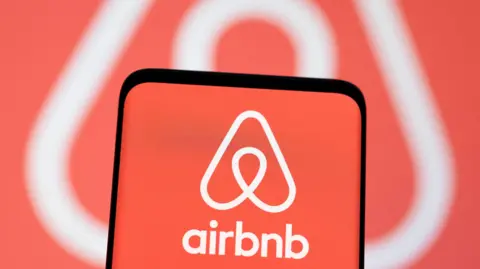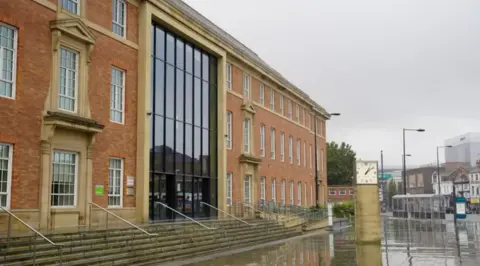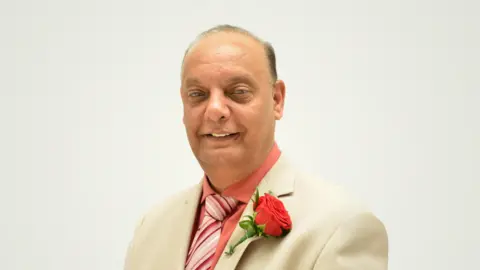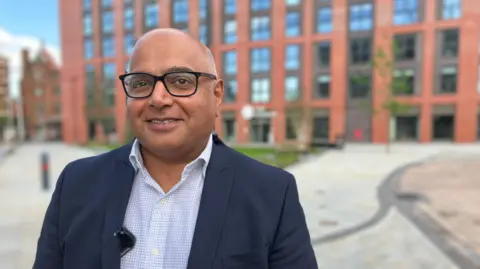Cost of housing city's homeless soars in three years
 Reuters
ReutersThe annual cost of housing homeless families in private temporary accommodation in Derby has soared by more than £4.5m in three years, the BBC has found.
Councils have a legal duty to take "reasonable steps" to try to help people at risk of homelessness.
By September, Derby City Council had already spent over £4.6m on housing homeless families in nightly paid temporary accommodation, such as B&Bs and Airbnbs, for the current financial year.
Shiraz Khan, cabinet member for housing, strategic planning and regulatory services at the authority, said: "This is not unique to Derby - it is a national issue."

Figures released to the BBC via a Freedom of Information request show the council spent £7,500 on housing homeless families in temporary accommodation in the 2021-22 financial year.
The figure rose to £360,559 the following year before increasing to over £2.6m in 2023-24.
The number of families the Labour-led authority housed in Airbnbs specifically has increased by over 400% since 2021.
The city council acknowledged in a recent assessment of its finances that temporary accommodation was a particular pressure.
 Derby City Council
Derby City CouncilA council report from September noted there were currently 341 households in B&B accommodation compared to 120 families this time last year - almost triple the amount in the space of 12 months.
Khan said: "Whilst the number of households that are presenting as homeless has remained relatively stable over the last couple of years, rising mortgage interest rates, rising private sector rents, the energy and cost-of-living crisis and low levels of social housing turnover have all contributed to more households needing support from the council to provide accommodation."
He said "limited affordable housing options" meant people were "remaining in temporary accommodation for longer".
"We continue to try and help as many households as possible to meet their housing need," he added.
'Worst option'
Steve Hassall, leader of the Derby Conservatives, called the figures on council spending on the issue "alarming".
"It is worrying that we have people being housed at great expense in unchecked and unregulated properties," he said.
Jackie Carpenter, from Derventio Housing, said using private accommodation was the "worst option" for the council, but it had no other option.
"By law they have to provide an immediate place to stay for people who are homeless, but there are more people they have to help coming through," she said.
"People who had jobs who are not people who'd ever thought they would be homeless, are homeless because of the cost of living, losing their job etc.
"You've got more people going in, but nobody is leaving because there's nowhere to go.
"When accommodation is in such short supply, landlords can charge what they want."

Baggy Shanker, the Labour MP for Derby South and former leader of the authority, told the BBC the figures show the need for more affordable housing.
"The legacy of Right to Buy has seen our housing stock halve and not enough new social and affordable homes being built," he said.
"This is precisely why the Labour government's already announced planning reforms, and we have an ambition to build 1.5m homes in the next five years."

Analysis
By Georgia Roberts, political reporter, BBC Derby
Rising numbers of homeless families needing temporary accommodation were recently identified as a "significant new pressure" by the council.
The figures given to the BBC on nightly accommodation spend don't include the housing benefit subsidy, or in other words, the money successfully claimed back through housing benefit.
However, given private Airbnbs and hotels are not classed as registered accommodation, their spend cannot be claimed back from central government, causing a balloon in council spending.
Senior council leaders have said the cost of living, private landlords putting rent prices up and a lack of social homes are largely responsible for more families facing homelessness in the city.
Follow BBC Derby on Facebook, on X, or on Instagram. Send your story ideas to [email protected] or via WhatsApp on 0808 100 2210.
